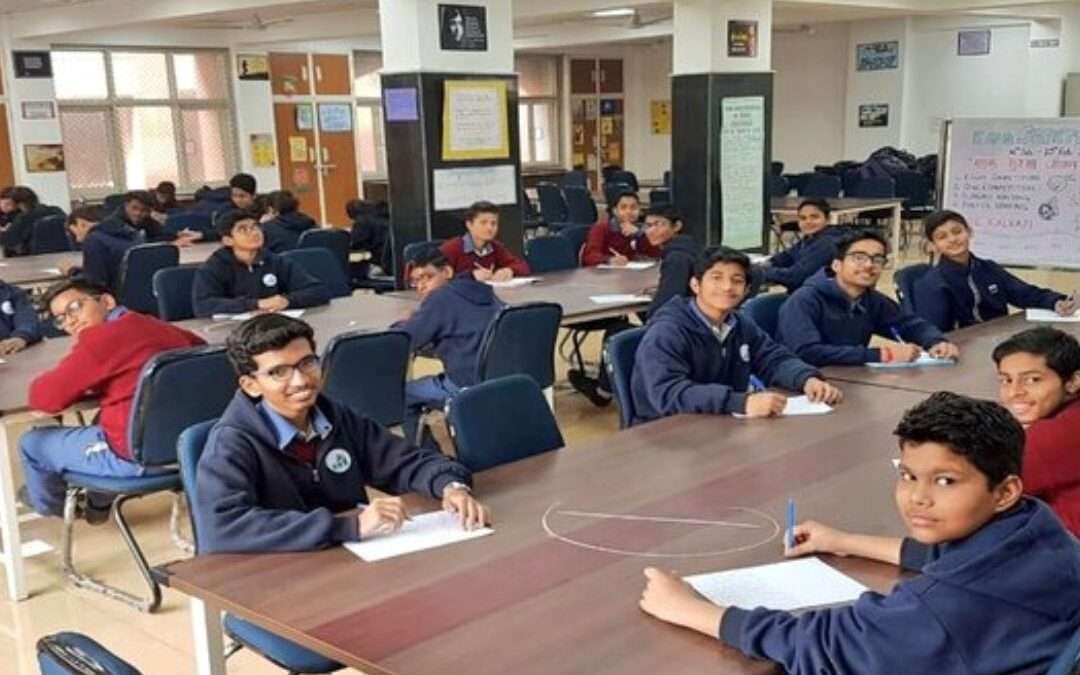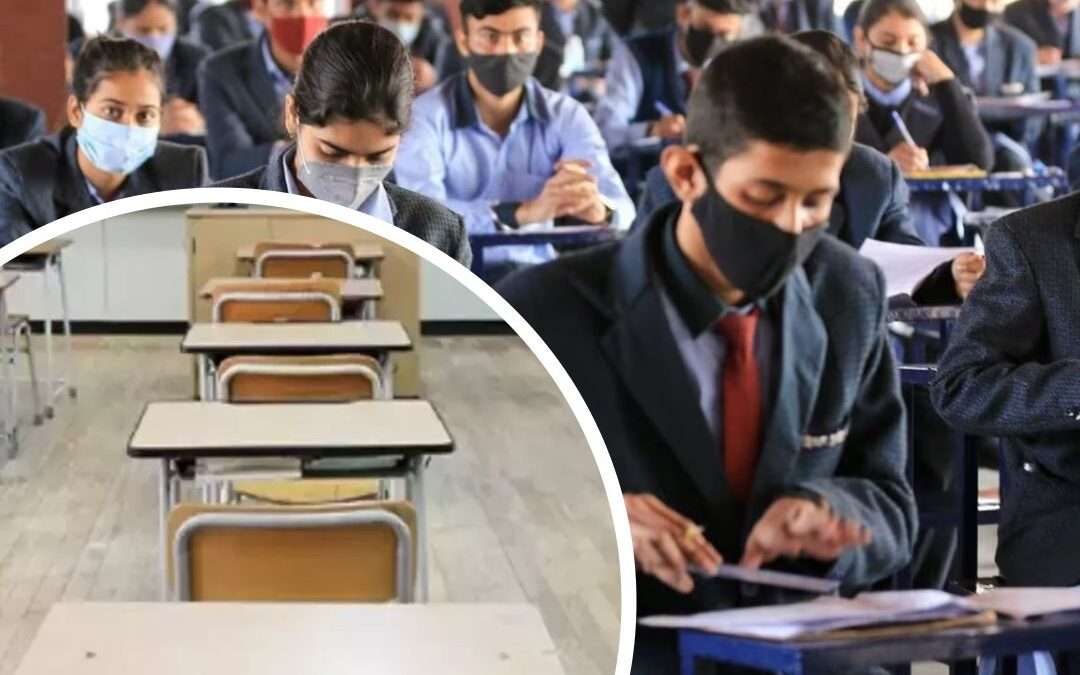
by Rohan | Feb 6, 2024 | JEE 2024
The analogy of driving a car can be used to creatively convey the similarities and differences between Boards, JEE Mains and JEE Advanced exams 2024.
Boards can be thought of as driving a car on an empty field. Just as an empty field provides ample space for a car to move around freely and manoeuvre easily, the board exam provides students with a relatively easy and stress-free environment to showcase their knowledge of the subjects studied in school. The questions in the board exams are primarily focused on testing the student's understanding of the concepts studied in school with more emphasis on theory, and standard reasoning, and less numerical. It's more about knowing the facts and less about applying the knowledge to solve problems.
JEE Mains and JEE Advanced exams 2024, on the other hand, can be thought of as driving a car on an empty road. Similar to an empty road, JEE Mains requires more focus and attention from the students, as they need to apply the knowledge acquired in school to solve problems in the field of engineering. This is a bit more challenging than the Boards but still not as hard as the final step JEE Advanced. The questions in JEE Mains are more focused on application-based where the student is required to apply their knowledge to solve problems. It requires a bit more attention and focus than the board exam.
JEE Advanced is the final and most challenging of the three exams and can be thought of as driving a car in heavy traffic. Similar to heavy traffic, JEE Advanced tests the student's ability to navigate complex problems and make quick decisions under time pressure. It is a high-pressure environment where only the most skilled and prepared students can excel. The questions in JEE Advanced are more abstract and require a deep understanding of the concepts and critical thinking, comprehension, modelling of problems, and solving them. It's the most challenging of the three exams and requires the most effort and attention.
In summary, Boards, JEE Mains, and JEE Advanced 2024 are all different stages of the same educational path, leading to admission into undergraduate engineering programs in India. The syllabus for all three exams is similar, but the level of difficulty and the amount of effort required increases as the student progresses from Boards to Mains to Advanced. It's important to note that these are not different paths, but rather different milestones on the same path.
It's significant to empathize that, with consistent efforts a student can reasonably prepare himself for all three exams in 2 years of 12th and 11th if he follows the instructions and guidance of coaches who know him well and are expert and experienced in JEE coaching.

by Rohan | Feb 6, 2024 | JEE 2022
As parents, it is important to understand that the transition from class 10 to 11, along with the requirements of preparing for a competitive exam like the Joint Entrance Examination (JEE), can be a drastic change for both the child and their parents. This is a challenging time for both, as it requires a significant amount of time, effort, and dedication. To navigate in this demanding situation, it is important for parents to give their child enough space to adjust and cope. This includes providing emotional support, being understanding of a child's stress and pressure.
As experts in education, we are not necessarily experts in parent-child relationships, but through our experience in parent-teacher meetings and other communications, we have observed that transparency between parents and students is a key factor in the student's success in the Joint Entrance Examination (JEE).
Almost every successful student has a healthy and transparent relationship with their parents, it is often reflected in their body language. They have trust and understanding which works even without verbal communication. This leads to clarity and coherence in goal, belief in the process, endurance, greater responsibility and self improvement for children with good relationships with their parents.
On the other hand, when there is a lack of transparency between parents and students. There is often arrogance or ignorance towards each other and lack of respect for each other's space. They tend to switch processes in between and always blame outside factors for their lack of success which results in inconsistency in the student's progress.
The Joint Entrance Examination (JEE) is a highly competitive exam, and there are huge academic expectations from coaching and schools. This can make the task of being a parent even trickier, as a child cannot find a support system better than their parent. It's important to have regular conversations with your child about their progress and their goals. Your child should not look at you as another teacher or manager, but as someone who will listen to them in any circumstances, who will not judge them, and who will support them through the journey. It's important to have a bird's eye view of the situation.
You know your child better than anyone else and this is your strength. As parents, you are your child's greatest well-wisher and believer. You have invested a lot of time, effort and money in your child's education, and a lot is on stake. It's important to be realistic and understanding of your child's situation, and encourage them to do their best, and support them in their efforts.
While the responsibility of a child's success in JEE is not solely on the shoulders of the parents, a good parent-child relationship is a must.
Coaches are the equal stakeholders, they can be an effective channel to know more about your child and to help them during these years. They can help to create a supportive and nurturing learning environment for the student. Be in touch with the coach of your child, don't wait for test results and take their feedback positively. However for all this coach should know your child well, not merely as another roll number in a huge group of students.

by Rohan | Feb 6, 2024 | Uncategorized

by Rohan | Feb 6, 2024 | Uncategorized
Foundation courses for the Joint Entrance Exam (JEE) are designed to provide students in classes 8-10th with a comprehensive understanding of the core concepts and skills required to excel in the competitive entrance exam for admission to top engineering colleges in India. These foundation courses are crucial for students who aspire to pursue a career in engineering and want to increase their chances of being admitted to a prestigious institution.
When it comes to foundation courses, students can be broadly categorized into three groups: those who are genuinely interested in studies, those who are sincere but not necessarily passionate, and those who are not truly invested in the material and are only taking the course to keep up with their peers.
The first group of students, who are genuinely interested in studies, are rare but highly motivated. They are excited by the prospect of learning new concepts and solving difficult problems, and are able to independently work through multiple iterations to find solutions. For these students, studying is a sport and they enjoy the process of learning and problem-solving. This group of students comprises less than 0.01% of the total student population.
The second group of students, who are sincere but not necessarily passionate, make up a larger percentage of students in foundation courses. These students are motivated to do well in their studies, but they may not have the same level of enthusiasm as the first group of students. This group of students comprises less than 10% of the total student population.
The third group of students, who are not truly interested in the material and are only taking the course to keep up with their peers, make up the largest percentage of students in foundation courses. These students may have been enrolled in the course by their parents without taking inputs from the student. However, these students are demotivated and often lack the drive to engage with the material. They may not see the value in studying and only view it as a compulsion.
It is important to note that foundation courses for JEE can only be beneficial for students in the first two groups. The first group of students, who are genuinely interested in studies, will thrive in the foundation course and gain a significant lead over their peers. They will develop a strong foundation of knowledge and skills, which will give them an edge in the competitive JEE exam. On the other hand, the second group of students, who are sincere but not necessarily passionate, will learn the importance of hard work, focus and time management. They will develop a deeper understanding of the concepts and learn to set priorities, which will be crucial for their success in class 11th and 12th.
However, it is important to note that success in the foundation course does not guarantee success in JEE. Consistency, perseverance and guidance are key to achieving the desired outcome. The foundation course is just a stepping stone, it is a crucial one, but the real test of success is how well a student utilizes the guidance provided in class 11th and 12th.

by Rohan | Feb 6, 2024 | Uncategorized
Before starting on the path to prepare for the JEE, it is important for an aspirant to have a very strong personal need to do so. Simply wishing to succeed in the JEE will not be enough to see them through the rigorous and challenging preparation process.
There is a difference between a need and a wish. When something is our need, it is of paramount importance and is the only priority. We are willing to make sacrifices, such as giving up leisure activities and social events, in order to focus on our need. This focus and dedication reflects in the amount of effort and work we put in.
A strong personal need can stem from a variety of factors such as a desire to pursue a specific field of study, a lack of opportunities in immediate environment, or a desire to prove their worth and capabilities.
The need to succeed in the JEE should be the driving force behind the aspirant's preparation, and all other aspects of their life should be aligned with this need. This includes setting clear goals, creating a study schedule, and being held accountable for their progress.
A strong need to succeed in the JEE becomes the source of willpower for an aspirant. Willpower is the determination and grit required to convert an aspirant's emotions into actions. This willpower is reflected in the daily routine of an aspirant and how rigorously they are able to complete the tasks they have assigned themselves in order to meet their need of cracking the JEE.
Willpower helps an aspirant to stay focused and motivated. However, willpower centres everything on the individual and may prevent one from seeing the overall picture. Faith in oneself, in one's parents, and teachers, and overall setup, helps the aspirant to stay grounded and not let the small setbacks or failures derail their overall plan. Faith allows the aspirant to see the bigger picture and to keep working towards their goal, even during difficult times.
There are many instances where an unexpected stimulus had an avalanche effect on the overall process and aspirants were unable to give their best. On other hand faith helped some other aspirants to take the exact same stimulus constructively and do miracles.
As a coach, our role is to guide and support our aspirants as they navigate through the challenging journey of preparing for the JEE. However, one of the most significant challenges we face is to ignite a burning passion within our aspirants to excel in the JEE. It's not something that can be forced or imposed, the desire to succeed in the JEE must be deeply ingrained in their subconscious, driving them to take consistent action towards their goal.
We can support this drive by providing them with the necessary resources, guidance, and help them to stay motivated and focused on their goal. We can help them set clear and realistic goals, create a study schedule that works for them, and hold them accountable for their progress. But ultimately, it's the aspirant's own inner fire that propels them towards greatness. We can't light a new flame, but we can fan the existing one, and with our guidance, it can burn brighter and stronger.





